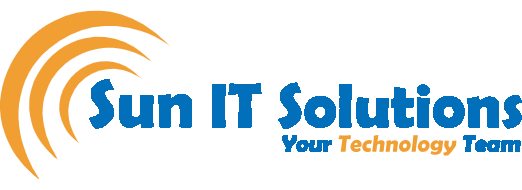Cloud computing is available in a variety of services. There is no doubt that cloud computing will provide several benefits to your firm. However, if you want to retain optimal efficiency in the cloud, you must select the appropriate service level. The many service tiers offered control how you design and maintain your IT infrastructure using cloud computing.
Cloud computing services are classified into four kinds. Software as a Service (SaaS), Platform as a Service (PaaS), Infrastructure as a Service (IaaS), and Desktop as a Service is the four types (DaaS). Let’s take a look at each of them and see what sort of organization will profit from them.
Cloud services, which enable employees to access business apps, data, and resources from any place via any device, have grown more important as workforces migrate away from physical offices in favor of remote work environments. When it comes to managing hybrid and remote workers, businesses today have various cloud service alternatives to select from:
- Software as a service (SaaS)
- Platform as a service (PaaS)
- Infrastructure as a Service (IaaS)
- Desktop as a Service (DaaS)
Software as a Service (SaaS)
SaaS is primarily intended for end users and is provided through the web. It is often available on a subscription or pay-as-you-go basis. Because of its ease of use, this model is quickly gaining popularity, and market indications forecast even more development. Some of the advantages of SaaS include:
Commercial web-accessible software SaaS software is frequently administered from a centralized place, making it simple to maintain.
No software upgrades are required of the user.
SaaS is great for businesses with applications that require internet or mobile access. This service level makes it very simple to connect to the internet without requiring any hardware changes.
It may not be appropriate for enterprises dealing with apps that are prohibited from exchanging data by law or otherwise. As the issue of data security continues to dominate the world of cloud computing, the industry has devised a variety of remedies.
Cloud providers are gradually providing more secure choices, and consumers may choose a hybrid approach that has all of the benefits of SaaS as well as added protection.
Platform as a Service (PaaS)
PaaS cloud computing services are tools for developing and running web applications. PaaS covers all of the basic components such as storage, servers, networking, and other development tools that manage applications automatically.
PaaS allows you to create and manage new cloud-based apps for your unique business use case, from development and testing through releasing and upgrading.
Because of these services, app developers can concentrate on building and advancing their applications rather than worrying about back-end tasks.
PaaS platforms have several advantages, including the fact that they are cost-effective because they do not require additional software and tools to manage your application.
Furthermore, the time you save by not focusing on maintenance tasks that the PaaS provider handles for you may be spent on further building the program and having it up and operating much faster.
PaaS platforms offer to have several more resources that might help you with your task.
- PaaS Examples
- Microsoft Azure Cloud Platform
- Salesforce Platform on Google App Engine
- Dokku SAP Cloud
Desktop as a Service (SaaS)
DaaS is another service model that uses a pay-as-you-go subscription plan and is connected to desktop virtualization technology. It generates a virtual desktop environment that is independent of the user’s physical device and may be accessed from any other sort of device.
Businesses utilize DaaS because it provides several benefits such as streamlined management procedures, increased flexibility, and cheaper operational expenses. Furthermore, accessibility is an important component of DaaS.
People may simply access all of their current data and programs by logging in to their virtual desktop from any device. For example, even if an employee is not in the office, they can still access the company’s virtual desktop from their computer at home.
Infrastructure as a Service(IaaS)
This is maybe the most important cloud computing service model. This is because it provides all of the typical resources such as servers, storage, and networking. IaaS, like most other service models, is built on a subscription-based plan.
Cloud computing service models are sometimes viewed as layers on a stack, with each new one building on the previous ones and complementing them all.
In this case, IaaS may be thought of as the very first layer in a stack.
What is The Difference and What To Choose?
When comparing the robustness of IaaS, PaaS, and SaaS, IaaS comes out on top. The vendor you select has no bearing on the resilience. The same is true for security. IaaS expenses might escalate due to the exact nature of invoicing, which is often charged per hour of service consumption.
PaaS, on the other hand, streamlines and simplifies the process of tackling complex high-level programming. This reduces the cost and time required for app development. The cost, on the other hand, rises when your application is scaled up. When you commit to a PaaS provider, you are committed to the environment and interface you have chosen.
SaaS offers a financial advantage over both PaaS and IaaS; it is less expensive than both, making it a lifeline for people and small organizations. However, unlike IaaS and PaaS, you have no influence over the administration with SaaS because the service provider controls all elements of it.
The graphic below depicts the size of the cloud computing market from 2018 to 2024, as well as the popularity of each cloud deployment option.
Each cloud computing model has advantages. However, depending on the user’s tastes, certain alternatives may be preferable to others.
A SaaS product is the most basic and easy-to-use alternative, but an IaaS solution provides primary resources at a low cost. DaaS, on the other hand, is a cloud solution that allows for more customization, whilst PaaS enables the flexibility to construct and grow applications for a bigger user base.





